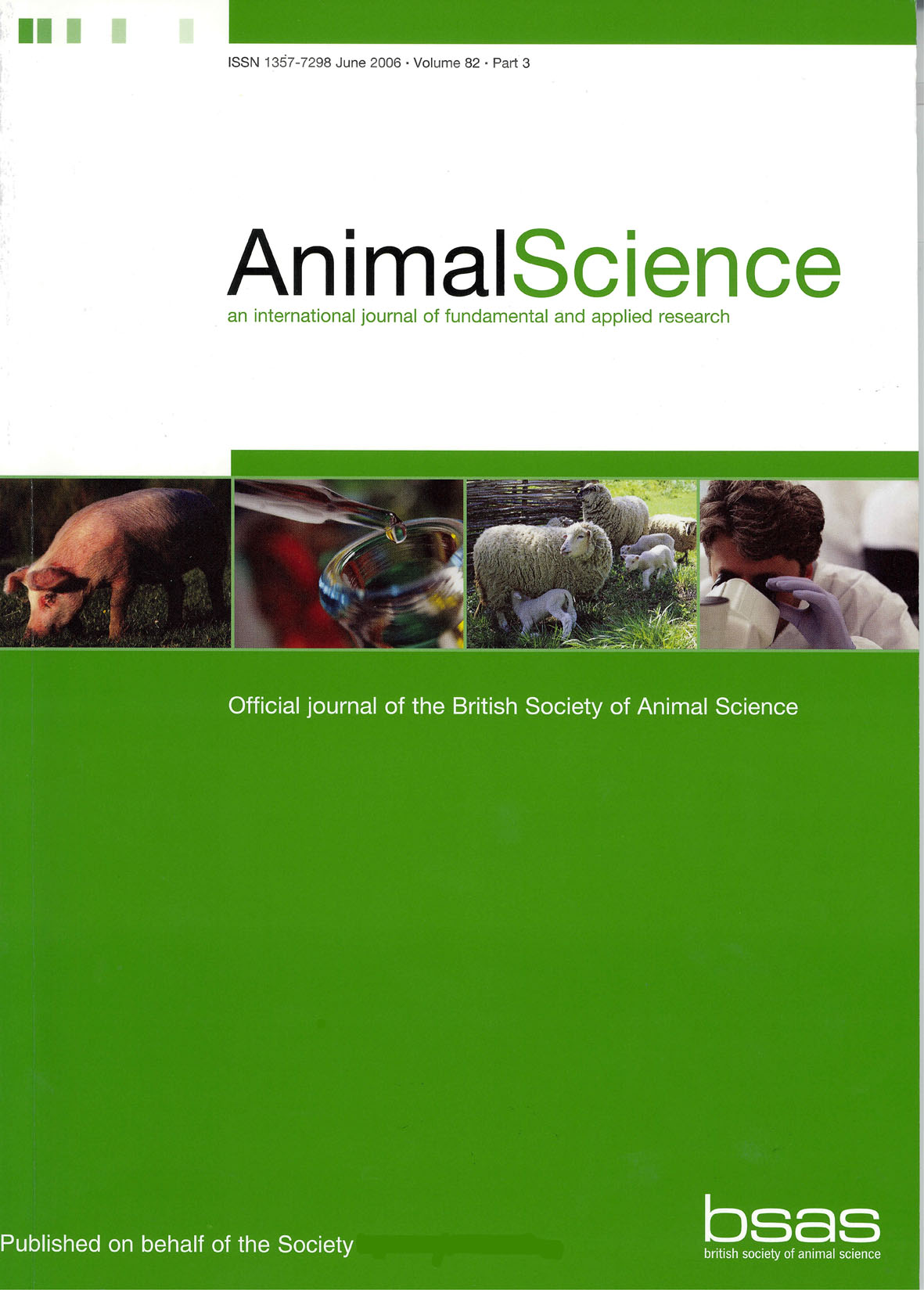Article contents
The effect of energy, protein and vitamin supplementation on the performance and voluntary intake of barley straw by cattle
Published online by Cambridge University Press: 02 September 2010
Summary
1. Daily allowances of 1·37 kg of concentrates, containing either 8·9 (treatment A), 13·6 (B), 19·1 (C) or 29·2% crude protein (D) were given to 40 individually-fed steers eating long barley straw to appetite over a 112-day winter feeding period. Voluntary straw intake on treatment B was 25% higher than that on treatment A. There were no signiicant differences in straw intake between treat-ments B, C, and D. Mean daily live-weight gains (kg) for the treatment groups were A, −0·22; B, 0·05; C, 0·04; D, 0·15. When the animals were turned out to pastore, group A showed very rapid compensatory growth, and it was concluded that this was mainly due to differences between the groups in their changes in alimentary tract contents. Vitamin A and D supplementation did not affect straw intake or performance.
2. When the above supplements were given to steers in metabolism crates receiving barley straw in restricted or unrestricted quantities, it was found that an increase in the crude-protein content of the supplement significantly increased the digestibility of the organic matter, crude fibre and crude protein of the whole diet when straw intake was restricted, and significantly increased the digestibility of crude fibre and crude protein when straw was unrestricted.
3. It was concluded that voluntary straw intake was limited, at the lowest level of supplementary protein, by a deficiency of absorbed protein. At the higher levels of supplementary protein, intake was probably limited by the capacity of the alimentary tract.
- Type
- Research Article
- Information
- Copyright
- Copyright © British Society of Animal Science 1970
References
REFERENCES
- 9
- Cited by


